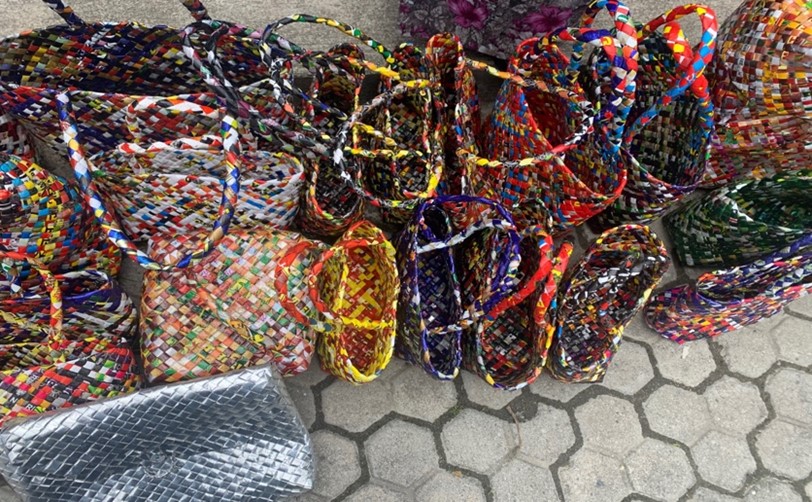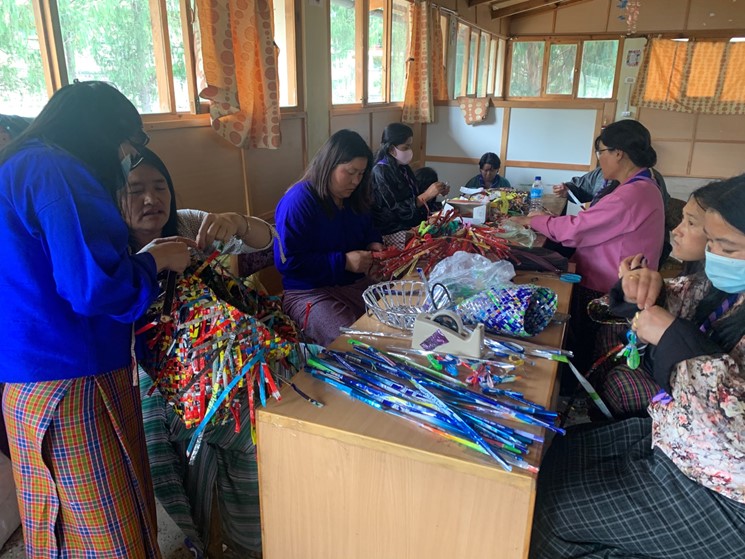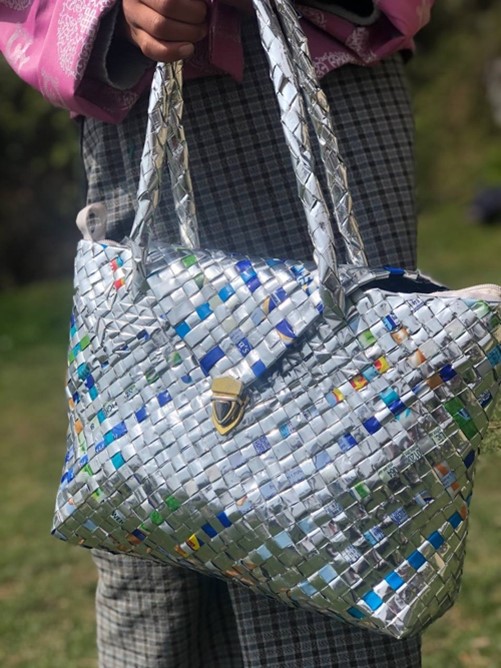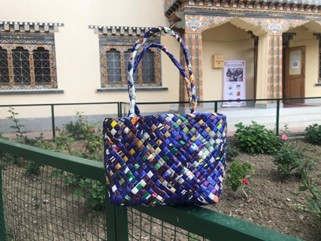
[Case Study] Environmental Education Achievements in Bhutan – Written by Bhutanese Consultant Ugyen Tshomo
Introduction
Globally eight (8) million tons of plastic are annually dumped in ocean and it’s estimated that by 2050 there will be more plastic in ocean than fish by weight. Despite Bhutan’s small population, economic growth has not only led to increasing urbanization and population but also seeing an increase in generation of solid waste.
Plastic waste are either reused for creation of bitumen in green road development by recycling firms in urban areas. However, with increased generation of waste in urban and rural areas of Bhutan, there are colossal accumulation of waste at Landfills.
Upcycling Plastic Waste
A Self-Help Women Group comprised of 20 female participants received two weeks hands-on training from the Royal Government of Bhutan along with other NGOs and Corporate agencies on upcycling plastic waste.
With this, to inculcate waste management practice and awareness, the hands-on training aims to promote 3Rs (reduce, reuse and recycle) and in achieving the overarching goal of Zero Waste Bhutan by 2030, and to empower women from lower socio-economic group.
This program is expected to empower women participation in waste management, to uplift the living standards of self help women group by creating an avenue for income generation stream, and to create public awareness on waste management particularly plastic waste. The participants during the training collected plastic waste from the bakeries around Thimphu and Memelakha landfill to upcycle into various artistic products.
Market Values
Through upcycling of pet bottles and other plastic waste into valuable products in the existing market, the participants are expected to earn Nu.350 to Nu. 1,500 per recycled product. With the growing demand in recycled products, there is huge potential to uplift living standard to low-income group. Currently, the Self Help Women Group has established marketing places at Thimphu, Trongsa and Bumthang and they have successfully completed creating awareness and further conducting training of trainers engaging women from respective communities on upcycling of plastic waste across the country by 2025.
This program can further facilitate existing means of skill, promote women entrepreneurship, allow women participation and empower decision making in waste management sector.
Conclusion
Therefore, with the successful trainings and implementation of this program, it is expected to reduce colossal waste disposal by segregation of waste from source, reduce waste by recycling, empower women in waste management and create avenues for income generate streams for women from the low income group. This program will not only inculcate waste management practices, it will also contribute towards environmental conservation and prevention of water, air and soil pollution.
Upcycled plastic bags and other products:




